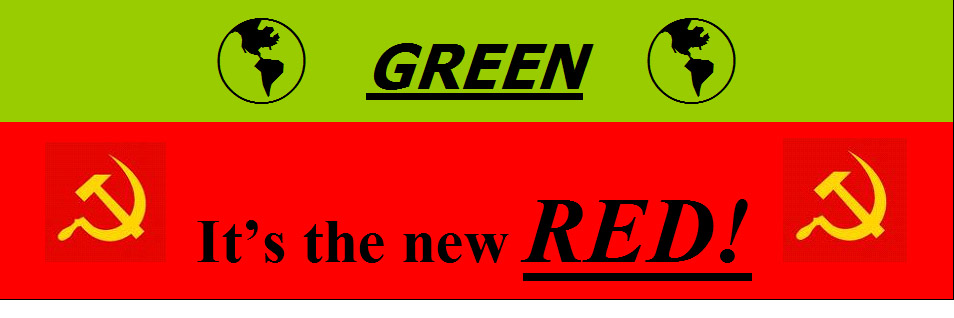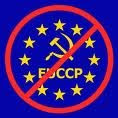 Clameur de Haro's fellow-blogger Jersey 24/7 commented recently on the threat which the traditional press feels is posed generally by the growth in internet journalism, and particularly, the blogosphere: and J-24/7 quite correctly links this to the concerns of Jersey’s political bloggers that the local “accredited” press are trying to stifle the development of the medium.
Clameur de Haro's fellow-blogger Jersey 24/7 commented recently on the threat which the traditional press feels is posed generally by the growth in internet journalism, and particularly, the blogosphere: and J-24/7 quite correctly links this to the concerns of Jersey’s political bloggers that the local “accredited” press are trying to stifle the development of the medium.
As political bloggers we have a great opportunity to put our collective case across at the moment, because after the recent kerfuffle about rights of access for the reporting (and in particular, the filming) of Scrutiny hearings, the Media Working Party set up under the chairmanship of Senator Ben Shenton has issued a call for evidence (“Publicising the States and Scrutiny”). In particular it asks -
Do you have an opinion on the use of blog sites?
Who do you believe to be ‘the media’?
and its terms of reference require it, after considering “…..the distinction, if any, between ‘bloggers’ and the ‘official’ press…”, to come to a definition of “the media”.
Clameur de Haro’s view is that no coherent definition of the media in 2010 can possibly exclude the political blogosphere: and that regular local political bloggers have just as much right as the MSM to attend and report events like Scrutiny hearings, should receive formal press accreditation to do so, and should be included in the definition of “the media”.
There’s very little doubt that the MSM in general and the Dead Tree Press in particular see the growth of the local political blogosphere as an unwelcome development at best and a threat at worst, and would like to negate it or marginalise it so as to protect its near-monopoly of political reporting and comment. The Jersey Evening [sic] Post kicked off its campaign of objection - in what it presumably thought was a subtle way - with Christine Herbert’s op-ed piece in last Saturday’s edition (still not posted online yet, incidentally – now there’s web-savvy for you….).
Writing about blogs, Ms Herbert professed herself to be “….a firm believer in the freedom of speech – and in the freedom of information” – but here comes the qualification “…when it is fair and in the public interest”. That’s exactly the point, Ms Herbert, which you signally didn’t go on to address. Before the development of internet journalism, it was the MSM which exclusively determined what was “fair” or “in the public interest” and either allowed or denied the public access to it: the MSM no longer has that monopoly, and like all monopolists whose position is challenged, it doesn’t like it.
She went on to say “Sadly, blogs in general are often little more than a licence to bully and victimise without fear of retribution”. In some cases that’s correct, but as Mr David Rotherham pointed out in a splendid riposte a couple of days later (curiously, also not viewable online), many concern themselves with the same kind of issues and material as the Dead Tree Press (sometimes rather more analytically), and no-one is forced to read a bad blog among the many alternatives available.
Ms Herbert continued “The information contained on the internet is often untruthful and lacks the kind of rigour and responsibility that more formal forms of communication have been subject to for many years”. Well, that’s sometimes true – but just a few lines above her blogging-related comments, when talking about the finance industry’s marketing initiatives in the Middle East, Ms Herbert referred overwhelmingly to Dubai, and used the phrase “families who had made their money from the liquid gold known as oil”. CdeH hopes that she has by now had it pointed out to her that Dubai has virtually no oil of its own, and that most of the UAE’s oil reserves are those of Abu Dhabi – as most bloggers of CdeH’s acquaintance well know. Not an especially momentous error, perhaps, and it doesn’t destroy the sense of the piece, but it shows that lack of journalistic rigour isn’t by any means exclusive to specifically internet journalism.
But the JEP isn’t alone: dislike of the accelerating development of new political media runs across most of the MSM, which increasingly floats reasons of public propriety as an unconvincing camouflage for its innate protectionism.
Mr Peter Wilby, the former editor of the New Statesman, referring to MEP Daniel Hannan’s monstering of Gordon Brown in the European Parliament which became such a hit on YouTube, is on record as saying “The online success of Daniel Hannan’s speech…………proves what we knew: the internet lacks quality control”. Echoes of Ms Christine Herbert there, methinks.
To quote Daniel Hannan (and with a large H/T to J-24/7 for directing CdeH to it) in reply -
“Yup. That’s the thing about the internet: it turns the quality filters off. Until very recently, few of us could get political news direct from source. It had to be interpreted for us by a BBC man with a microphone or a newspaper’s political correspondent. Now, though, people can make their own minds up. The message has been disintermediated.
What Mr Wilby seems to mean when he complains that the internet “lacks quality control” is not that my speech was ungrammatical or shoddily constructed, but that its content was disagreeable. The quality filters he evidently has in mind would screen out points of view that he considers unacceptable”.
Or to quote Douglas Carswell MP -
“….the web should put a smile on our face – it provided the means to change.
The web will do to the princely quangocrats and the priesthood of professional politicians who preside over us what the printing press did to their forebears. It’ll smash concentrations of power in our political system – just as it’s doing in retail and the media.
Barriers to entry in politics will go. Clear distinctions between amateur and professional will blur. A few years ago, (Polly) Toynbee and co formed an unchallenged aristocracy of commentators. Today, often to their consternation, they have to keep up with the likes of Guido Fawkes and a democratised commentariat.”
Messrs Hannan and Carswell express the MSM’s (and the JEP’s) fears in a nutshell, Clameur de Haro suspects. The fundamental point – and benefit - of internet journalism is precisely, as Mr Hannan puts it, that it does disintermediate the message: so that the MSM is no longer the only interpreter, the only route and the only filter through which the public has to accept its news and comment without an alternative source.
So the genie is well and truly out of the bottle, and the game and its rules have irrevocably changed. And we’re starting to see instances of governments and organisations admitting this fact, recognising that the definition of “the media” has broken open and widened for all time, accepting that it’s better to acknowledge and provide for this rather than try and ignore it or thwart it, and changing their media practices to acknowledge the role and reach of the new, “social” media.
As recently as 16 November, for example, the UK announced a review of the government briefing / parliamentary lobby system to end the predominance of Dead Tree Press journalists in the lobby and accommodate in future all forms of new media in briefings about government and parliamentary business. And on 07 December, NATO held its first ever briefing for political bloggers, inviting several authors from the UK political blogosphere to NATO HQ in Brussels for a day-long briefing with senior personnel, mostly about Afghanistan.
Jersey’s government needs to make sure that it’s not left behind the curve on this subject, by resisting the likely blandishments and objections from the MSM and embracing both the distribution and reporting possibilities that Jersey’s new media and its practitioners open up.

Admitting local political bloggers to the hitherto closely-guarded and jealously-protected ranks of the accredited media is vital to increased transparency (which politicians are fond of talking about), because it enables the message to be taken directly to the electorate without it being subject to the necessarily one-dimensional filter of the monopoly MSM’s interpretation of it. CdeH suspects, for example, that two or three local bloggers, irrespective of their individual political leanings, might well make a considerably better fist of reporting Scrutiny hearings and the like than JEP reporters subjected to firstly, space constraints imposed by the need to sell advertising space and secondly the whims and prejudices of the sub-editor.
So Clameur de Haro is inclined to spend a little time during those dog days between Christmas and New Year preparing a submission to the Media Working Party arguing strongly for the local blogosphere to be regarded unequivocally as an integral part of the media and accredited as such, with all the privileges – and responsibilities – of access which that entails. Comments, ideas, and contributions from fellow-bloggers welcome.
Add to del.icio.usDigg It!Stumble This














1 comment:
Excellent stuff CdeH. I too didn't like Christine Herbert's side swipe. I normally find her to be fairly fair as a reporter but people do react differently when they are under threat.
Post a Comment